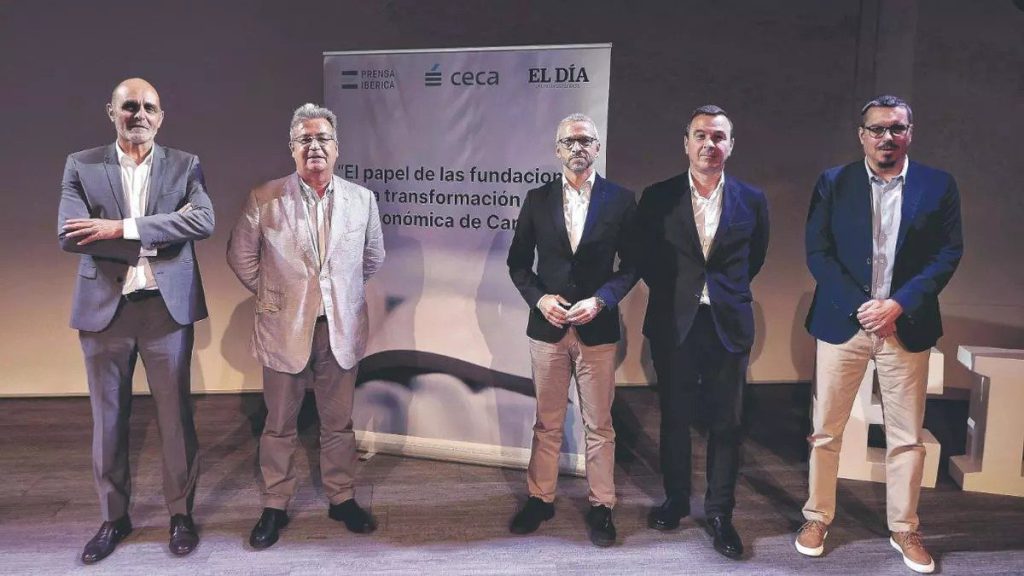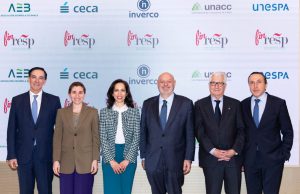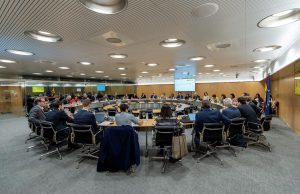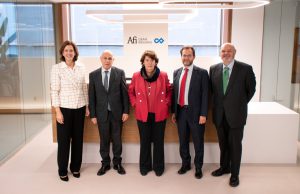The member entities of the CECA sector invested a total of €7.8 billion in 930,000 Obra Social projects across Spain in the last decade.
The Obra Social of financial institutions has historically been associated with savings banks, and currently this type of social projects has shifted towards the foundations of the CECA sector, in other words, the association of savings banks and banks created by such banks. A commitment that dates back to the eighteenth century with the emergence of the first social charities created to help the most vulnerable.
This is the basis on which the foundations of Fundación CajaCanarias, Fundación La Caja de Canarias and Fundación ''la Caixa'' are laid. In the last decade, this work involved an investment of €7.8 billion across Spain to promote 930,000 activities that reached an annual average of 31 million beneficiaries. For this reason, Grupo Prensa Ibérica and its two newspapers in the Canary Islands, EL DÍA and LA PROVINCIA, together with CECA, promoted the round table of experts on The role of foundations in the social and economic transformation of the Canary Islands.
The data presented by Alberto Aza, CECA's spokesperson, are convincing. In 2023, this sector invested more than €850 million. Investment in the area of Social Action accounted for the largest share, with an endowment equivalent to 57% of the National Budget earmarked for family protection and for tackling child poverty.
'Our dedicated and silent work, hidden away from the big media spotlight, is maintained after three centuries thanks to the cooperation between the different foundations', said Aza.
All the experts who participated in the discussion stressed that Obra Social accompanies families in the Canary Islands through social and welfare programmes; training and education, initiatives to support scientific research and R&D; cultural activities and actions for the conservation of heritage; promotion of employment and programmes related to sustainability, the environment and climate change. The foundations have undoubtedly contributed, and continue to contribute, to the social and economic transformation of the archipelago in recent decades.
'We are heirs to the system of savings banks and mounts of piety, and the strategic alliance between us, as well as with the organisations that comprise the Third Sector, is healthy, so we are not going to turn our backs on all the people who need us', said Fernando Fernández-Morales, from Fundación La Caja de Canarias.
Assistance to groups of people with the most pressing needs, the prevention of such situations and support for policies combating social exclusion are the main lines of action of these foundations that gathered at this event, in some cases with their own programmes of direct aid to families, and in others through the allocation of resources to Third Sector organisations, both private not-for-profit and public.
'We are aware of the importance of the Third Sector and of the people who work on the streets. There is little we could do without them', said Mauricio González Rodríguez, the delegate representing Fundación ''la Caixa''.
'We cater to people with real needs and the Third Sector organisations are on the ground in the neighbourhood', added Fernández-Morales.
'What has changed is that we are no longer directly dependent on the profit and loss accounts of the savings banks on which the foundations were dependent. The funds are our own funds, and with them we also pursue our own mission', insisted the delegate representing Fundación "la Caixa".
'Obra Social represents a particular way of banking, one in which the banking business and the social contribution are two sides of the same coin. And the proof lies in the fact that the CECA sector is the leading private social investor in Spain', defended Aza. 'And we are not only talking about a quantitative contribution, but also a qualitative one, because thanks to its territorial roots and proximity to the groups receiving assistance, we can complement public policies, personalising the programmes to the specific needs of the people', he reiterated.
'Foundations have a proximity to the community that should not be underestimated and if we manage to align ourselves with the sustainable development goals and create synergies between public and private stakeholders in the region, we will be important players in the economy and in Canary Islands society in general', said Óliver González, head of Fundación CajaCanarias.
An example of this proximity to the community is the CaixaPro childhood programme defended by González Rodríguez: 'it is implemented locally in each municipality and its districts to provide opportunities and to combat child poverty in the most disadvantaged social classes'.
The goal is to ensure that 'poverty is not inherited and that children can climb the social ladder. It is a programme that tackles social vulnerability, but with the awareness that we alone cannot change the reality'.
This action is an example of the multidisciplinary work of Obra Social, as it is not only targeting children directly but also their families, as it seeks to guarantee an optimum level of wellbeing in their own environment that favours their growth and development. To this end, school equipment is financed, summer camps and activities are promoted, family educational workshops are held, emphasis is placed on children's nutrition and hygiene, and psychological support or glasses and hearing aids are also provided. This is a commendable and sustained effort, as in these special programmes each child spends two or three years within a coordinated plan to promote and guide that child. In total, CaixaProinfancia attended to more than 6,200 children from 4,500 families in the archipelago.
Fundación La Caja de Canarias runs a similar programme with its school grants: 'It reaches 32 of the 34 municipalities in the eastern province and last year executed 99.2% of its budget, covering needs ranging from facilitating uniforms to tablets to try to alleviate the digital divide that was evident during the pandemic', argued Fernández-Morales.
This program, specifically, helped 1,321 minors from 676 families in the province of Gran Canaria
'The fact that the public sees the foundations as their own helps us to improve the understanding of our work. This proximity allows us to develop our programmes continuously over time, a necessary premise to contribute to the transformation of our society', insisted González Rodríguez. In this regard, Fernández-Morales reiterated that 'the 584,000 people benefiting from social aid are not only those directly affected, but also their families, who need both the assistance and a respite from their usual tasks that they provide to the beneficiary. So are all those people who visit a cultural exhibition or a theatre production that we promote'.
The data are irrefutable; employment integration projects provided 1,849 jobs in the Islands in collaboration with 435 companies; the Reincorpora programme for people in prison resulted in around one hundred job placements; 512 patients and 1,152 relatives entered in the programme of Assistance Integral to People with Advanced Diseases and more than 5,700 canaries participated in the 408 activities boosted by the programme of aging Fundación's ‘‘asset la Caixa ‘‘.
Specifically, and analysing everything that is implemented in relation to the elderly, Fernández-Morales emphasised that 'the concept of the Third Age has changed a lot, now we talk about the Fourth and even the Fifth Age, which is why we have to give these people new motivations, because we believe in an evolutionary education'. 'All the foundations have done a good job with the elderly, because life is life until the end and what we should strive to achieve is to delay as long as possible their access to dependency', supported González Rodríguez.
Obra Social should not only be synonymous with providing assistance to vulnerable groups; the work of the foundations is also geared towards programmes to promote research talent, with projects that they oversee and which, as González stated, 'even inspire other researchers'. 'Young people are the future of the islands', insisted Óliver González, head of Fundación CajaCanarias.
A discussion of Obra Social between the heads of the foundations could not end without mentioning the programme which, in the words of the head of Fundación CajaCanarias, seeks to 'promote Canary Islands talent in the arts and culture'.
For seven years, the Festival Internacional Canarias Artes Escénicas (CAE) has been committed to bringing theatre closer to children and young audiences in order to contribute to the personal and professional development of young people through the performing arts and, in particular, to create new audiences that mitigate the effect of the loss of audiences at cultural events. CAE, which 'could not be organised if it were not for the decisive support of Fundación ''la Caixa'' and Fundación CajaCanarias', offers a programme of performing arts, music, literature and audiovisual arts that contribute to cultural exchange and coexistence between artists, audiences and cultural stakeholders that responds to the new challenges of dialogue and social, multicultural, diverse and plural encounters and promotes culture among children and young people, groups at risk of social exclusion and people with disabilities or functional diversity. In addition to this important Festival, there is the promotion of exhibitions that contribute to the individual and collective development of the Islands.
In short, and as stated by the experts during the round table and summarised by CECA's spokesperson, Alberto Aza, 'Obra Social is our hallmark and its success fills us with pride and satisfaction'.













